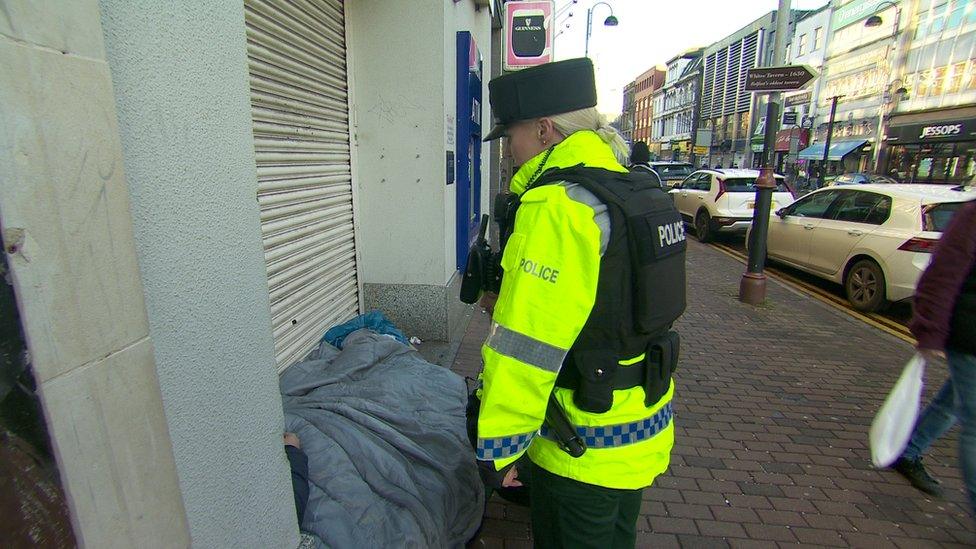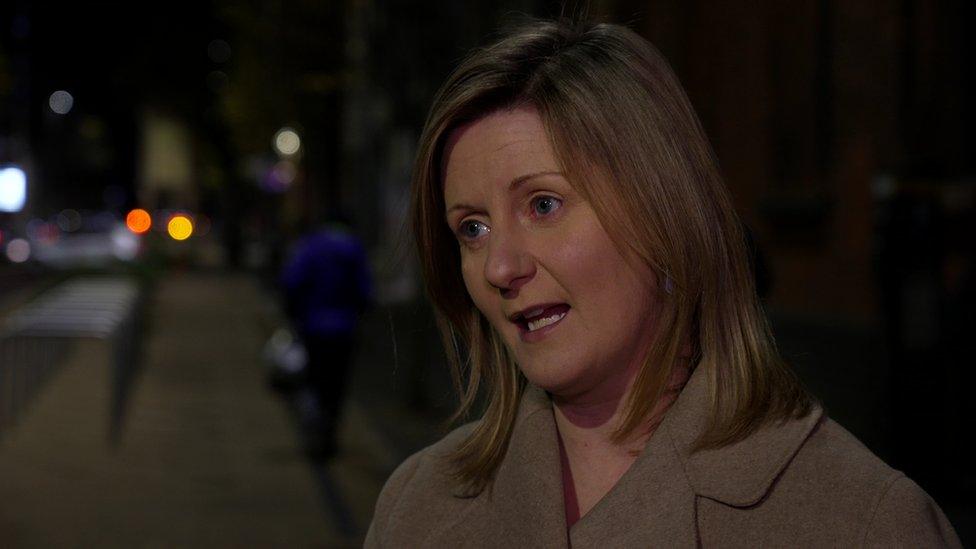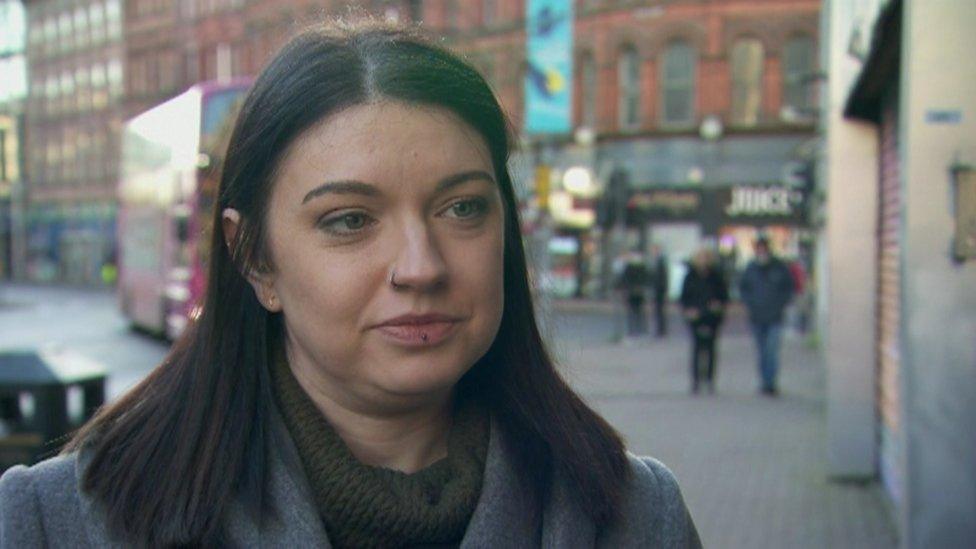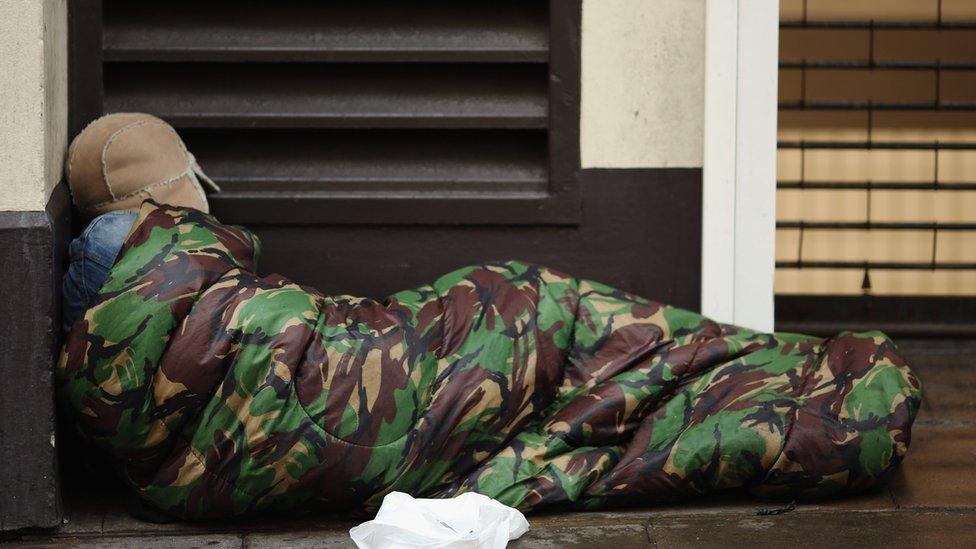Homeless in NI: Complex Lives project aims to help most vulnerable
- Published
Homeless in NI: 'I'm rock bottom, the only place I can go is up'
A new initative has been set up in Belfast city centre to help people who are homeless and have complex needs due to the use of drugs and alcohol.
The Complex Lives project helps the most vulnerable on the streets get access to housing, addiction support, mental health support and healthcare.
Not everyone who benefits from this project has the same issues.
However, all of those involved have very challenging needs and many live very chaotic lives.
They are amongst the hardest to reach, with many not engaging with services that are available to them.
Complex Lives brings together agencies including the Police Service of Northern Ireland, Housing Executive, Extern, The Welcome Centre, probation and youth homeless charity DePaul.

The police are among the organisations involved
Signs of drug use in the city centre are obvious.
In 2021, 212 people died from a drugs overdose in Northern Ireland.
The teams on the Complex Lives project say they are trying to help support those at their lowest point.
Grainia Long, chief executive of the Northern Ireland Housing Executive, said she was passionate about the project.

Grainia Long says the project aims to deal with the issues at the centre of people's lives
"First and foremost it is a person-centred approach to resolving the really complex issues for people experiencing homelessness," she said
"It's ensuring that the issues at the centre of that persons life is dealt with.
"And services are working alongside each other complementing each other rather than getting in the way."
The charity Extern is among the organisations involved in the initiative.
It helps a wide range of people at risk of social exclusion including the homeless, ex-prisoners and people struggling with addiction or mental health issues.
'Person-centred way'
Megan McAlmont, a senior practitioner with Extern, told BBC News NI the organisation welcomed the joined-up approach.
"We've always had brilliant relationships with all the agencies involved. We've always been working together for a common goal of supporting people.
"But this gives us a proper forum to sit down all together and work in a holistic way, in a person-centred way.

Megan McAlmont says it's a more person-centred approach
"It's more efficient for the service user, it's also less confusing.
"They have one appointed key worker and that's the person that they go to, for all of their support needs to be fed back.
"It is just a much nicer way of working for our service users."
The issues surrounding addiction and homelessness are extremely complex - but this project hopes to give support to those most vulnerable on our streets.
If you, or someone you know, have been affected by any of the issues in this article you can find information about organisations that can help on the BBC Action Line website.
Related topics
- Published18 December 2022
